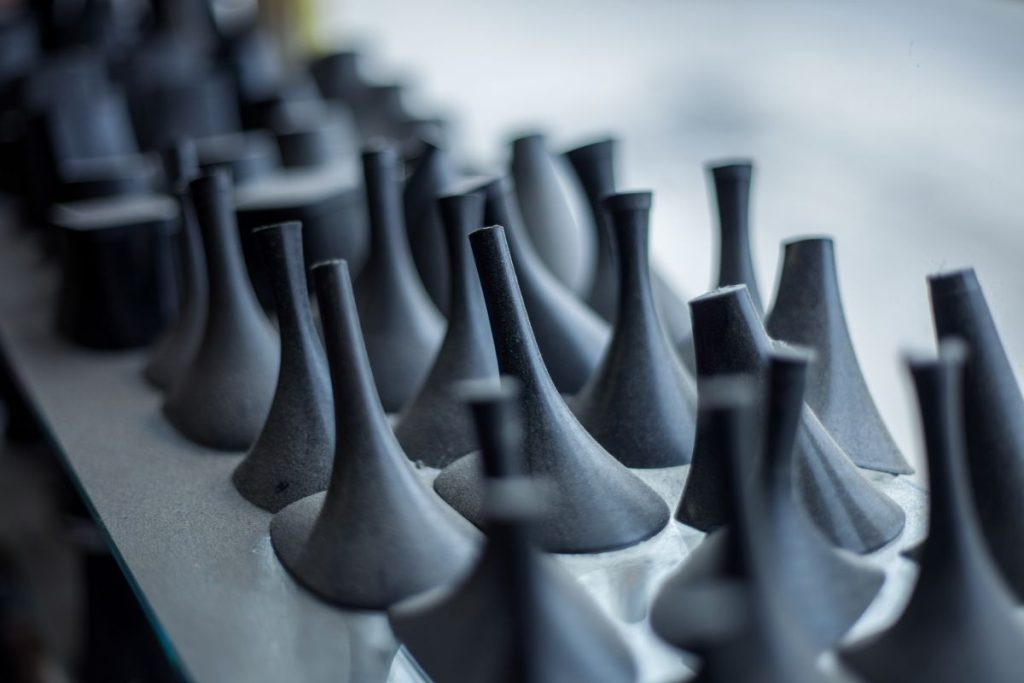How does large-part injection molding from China support sustainable manufacturing in the US?
- Lower transportation costs through bulk shipping
- Efficient resource management
- Use of renewable and recycled plastics
- Reduced energy consumption per unit
- Durability of products
Overview
- The article discusses how large-part injection molding contributes to sustainable manufacturing practices, particularly in U.S. companies working with Chinese suppliers.
- Key benefits include reduced transportation costs through bulk shipping, minimizing carbon emissions, and efficient resource management that reduces waste and optimizes material usage.
- The use of recycled plastics promotes a circular economy, lowering the carbon footprint associated with raw materials.
- Energy-efficient technologies in injection molding reduce energy consumption per unit, lowering operational costs and emissions. The durability of products made through this process reduces waste, aligning with sustainability goals and enhancing long-term environmental impact.
As more companies prioritize sustainability, the manufacturing industry is also evolving to meet eco-friendly goals. Sustainable methods are no longer optional but essential for businesses looking to reduce their environmental impact while maintaining efficiency and quality.
One such method is large-part injection molding, a process increasingly adopted by U.S. manufacturers in partnership with Chinese suppliers. This technology not only supports high-volume production but also helps minimize waste and optimize material usage.
In this article, we’ll explore how large-part injection molding from China contributes to sustainable manufacturing practices, enabling U.S. companies to meet both environmental and operational objectives.
Lower Transportation Costs Through Bulk Shipping
Consolidating shipments into bulk quantities lowers the per-unit cost, as transporting thousands of tons in one shipment is far more economical than multiple smaller shipments. This efficiency in logistics reduced overall shipping expenses, benefiting manufacturers financially.
Fewer shipments mean fewer transportation trips, which contributes to sustainability efforts by lowering carbon emissions. The environmental impact is further minimized, as the large volume of goods reduces the need for frequent transportation. While longer transit times are expected, the reduced carbon footprint and cost savings from bulk shipping support both sustainability and efficient global manufacturing practices.
Efficient Resource Management
Efficient resource management in large part injection molding contributes significantly to sustainability by minimizing waste and optimizing material usage. The process ensures that raw materials are used precisely, reducing scrap and excess production.
By utilizing advanced technologies like computer-aided design and automated systems, manufacturers can maximize material yield, lower energy consumption, and reduce costs. Moreover, the ability to reuse and recycle materials in some injection molding processes further promotes sustainability. This careful management of resources not only supports environmentally friendly practices but also enhances the overall efficiency of production, making large-part injection molding a key player in sustainable manufacturing.
Use Of Renewable And Recycled Plastics
These manufacturers may also utilize advanced techniques to process recycled materials, ensuring that the final products meet the high-quality standards required for various industries. The reduction in the use of virgin plastic lowers the carbon footprint associated with raw material extraction and processing, which is energy-intensive.
Using recycled plastics also promotes a circular economy, as it reduces waste and keeps plastics in circulation for a longer period. For U.S. companies, sourcing products made from recycled materials helps them meet their own sustainability goals while benefiting from cost-effective production. As demand for environmentally friendly products grows, partnering with manufacturers focused on sustainability allows U.S. businesses to improve their environmental impact and appeal to eco-conscious consumers.
Reduced Energy Consumption Per Unit
Reduced energy consumption per unit in large part injection molding significantly enhances sustainability by lowering the environmental impact of production. Advanced injection molding machines use energy-efficient technologies, such as optimized heating and cooling systems, which reduce the amount of electricity required for each cycle.
The integration of automated processes and precise control over production parameters also ensures that energy is used only when necessary, further minimizing consumption. This reduction in energy use not only decreases operational costs but also lowers carbon emissions, making the process more eco-friendly and contributing to the overall goal of sustainable
Durability Of Products
Techniques like insert molding, which incorporates metal components into plastic parts, enhance strength and resilience, while high-impact thermoplastics provide excellent resistance to environmental factors such as UV exposure and moisture. This durability extends the life cycle of products, significantly reducing the need for frequent replacements.
With longer-lasting items, waste generation decreases, as fewer products are discarded over time, which also lessens the demand for resources needed to produce replacements. This approach aligns with sustainability goals, as fewer products in landfills contribute to a lower environmental impact. By sourcing durable components from manufacturers prioritizing longevity, businesses benefit from reliable, high-performance products while supporting environmentally conscious practices.
Key Takeaway
Manufacturers are redefining efficiency and quality by adopting innovative practices that align with environmental responsibility. Through large-part injection molding for sustainable manufacturing, Richfields exemplifies this potential by optimizing resources, reducing waste, and delivering durable, high-quality components.
Contact our team today to discover how large-part injection molding can transform your operations.
